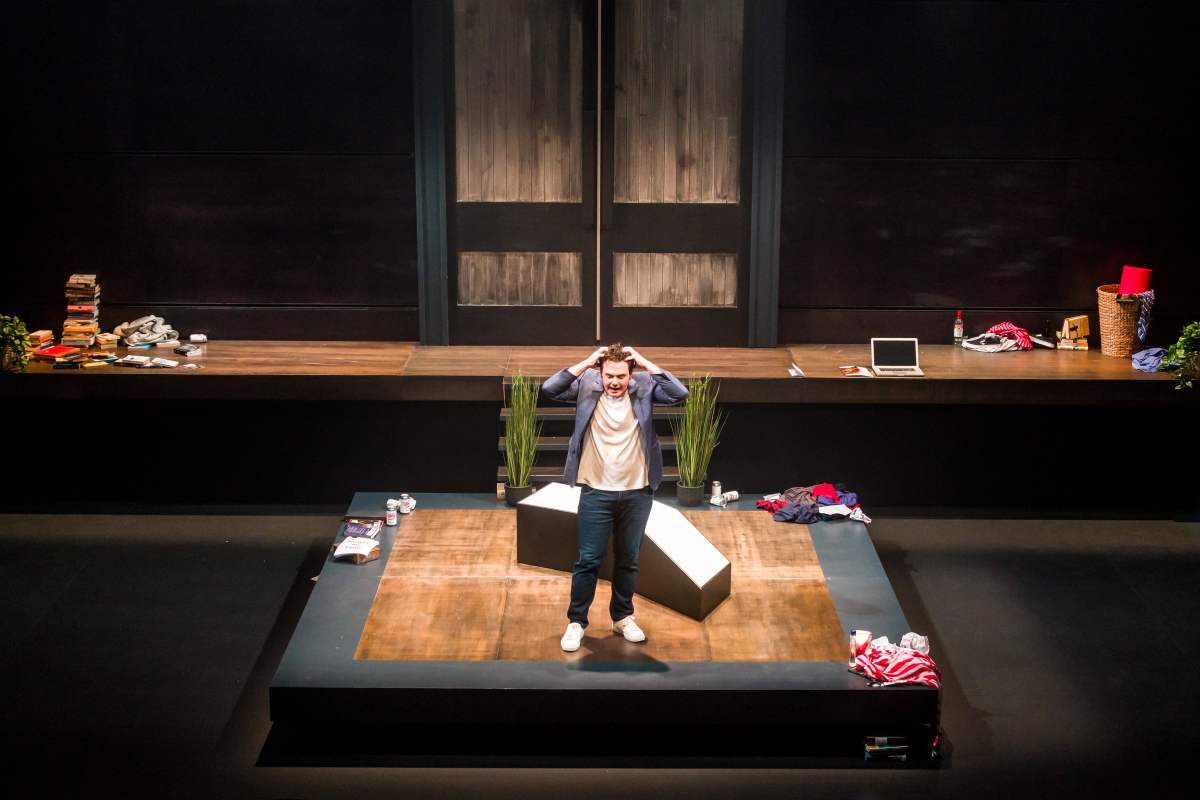Breaking the Castle was born following Peter Cook’s attendance at a script development course in Canberra, where he made the decision to write a play based on his own, some would say quite extraordinary, life experiences. He trained as an actor at the Victorian College of the Arts and writing was not foreign to him, as he had developed many scripts elsewhere, but Breaking the Castle was his first main play.
Developed with the support of The Street Theatre, Canberra, which subsequently produced the world premiere in 2020, the production then toured to HotHouse Theatre in Albury/Wodonga in 2021 and to Riverside Theatres in Parramatta in 2022.
This Queensland premiere is a completely new version of Breaking the Castle, with creative input from local sound, lighting and stage designers. It has also been re-visioned with direction by the impressive Leah Purcell, whose company Oombarra Productions, with producer Bain Stewart, is a joint presenter with QPAC of this season’s new production.
The story that Cook tells is not an easy one, dealing as it does with drug addiction and mental illness. He says that he wrote the play because he is one of the few people that made it out alive after hitting rock bottom. Having been given the opportunity for rehabilitation, he now wants to give a voice to those on the fringes of society who do not have that same opportunity. Bravely, he is also keen to face his past demons in this work and take away some of the stigma attached to addiction and mental health.
Cook stars in his one-man show, playing Dave Smith, a character who is based very much on him, but with some obvious theatrical licence. The play is a 90-minute monologue and is extremely well constructed, moving fluidly from one scene to the next on an open set that represents variously: his home, Darlinghurst streets, a Thailand rehabilitation centre, sporting fields, audition rooms, pubs and the TAB, among other locations. It is very well-written, energetic and punchy, with Cook playing not only Dave but a range of other characters who impact on his life in various ways.
These all have their own particular voices and accents, including his friends Johnno, a drug addict, and Frank, a recovering addict. When he first arrives at rehab, he likens it to the United Nations and rattles off a series of first-rate accents from the US, Ireland, Eastern Europe and India, which are sharply identifiable. The counsellor’s Cockney accent, a continuing thread in the story, is also spot on.
The show starts with Dave waiting for his cue to go on stage in an unidentified role and play, but it’s an image he comes back to time and again. One feels that being an actor, and his desire to be on stage, is often what kept Cook, and by default Dave, going through the tough times. Another haunting image is of a huge door revealing light through the cracks, accompanied by reverberated sound, perhaps a dream, perhaps a possible way out of his addiction.
The work is variously sad and poignant, with an often wry and self-deprecating sense of humour. It can also be hilariously funny, especially a marvellous scene where, as an out-of-work actor he is auditioning to be a cockroach in a Mortein advert, and has to die an agonising death on the floor. A scene in the TAB where he is watching the race as the commentator and encouraging his horse to win is hysterical and brilliantly delivered.
We learn through the rehab scenes, which pepper the story, that the turning point for addicts is to admit you are one. Once that hurdle is passed, then it is possible to have faith in yourself and try and turn your life around, as Dave does. The tough-skinned counsellor is all important here. There is a particularly chilling scene where Dave shows us the process involved in smoking crystal meth and the effect it has on you immediately and over the next three days. If anything could be designed to turn a person off drugs, then this would be it.
Additionally, the most poignant episodes are around the death of his older sister from leukaemia, and a scene at six years of age hinting at sexual abuse. These slices of life are tinged with grief and heartache.
Purcell’s direction is exemplary, rhythmically weaving a cohesive path through the various scenes and establishing the character and life of Dave with great aplomb. Cook’s performance is a tour de force, as he skilfully changes direction and moods, presenting the various scenes and characters flawlessly, and thus allowing the work to flow seamlessly. Set design by Raymond Milner, lighting by Ben Hughes and sound by DOBBY are all first-rate.
At the end of the Breaking the Castle, Dave tells us that punishing people for addiction is not the answer, as ‘the hell of addiction is punishment in itself’. It is a sobering reminder of an illness that has afflicted so many in our society and our need to find much better ways to prevent and cure addiction and aid mental health.
Read: Performance review: KING, Sydney WorldPride
This is not only a very good play, beautifully conceived, written and delivered, but it sends a strong message of hope, as well as a need for better understanding. As Cook so eloquently puts it: ‘I wrote it to humanise people suffering with these issues and encourage a sense of compassion for those who have fallen between the cracks.’
Breaking the Castle
Presented by QPAC in association with Oombarra Productions
Cremorne Theatre, QPAC, Brisbane
Written and performed by Peter Cook
Director: Leah Purcell
Designer: Raymond Milner
Sound designer: DOBBY
Lighting designer: Ben Hughes
Stage manager: Erin Shaw
Tickets: $35-$45
Breaking the Castle will be performed until 4 March 2023.





